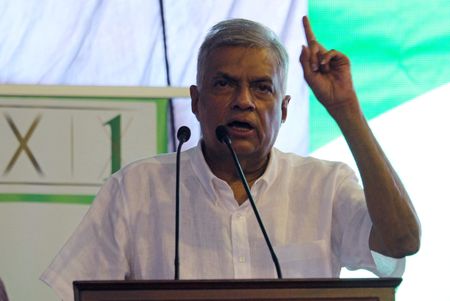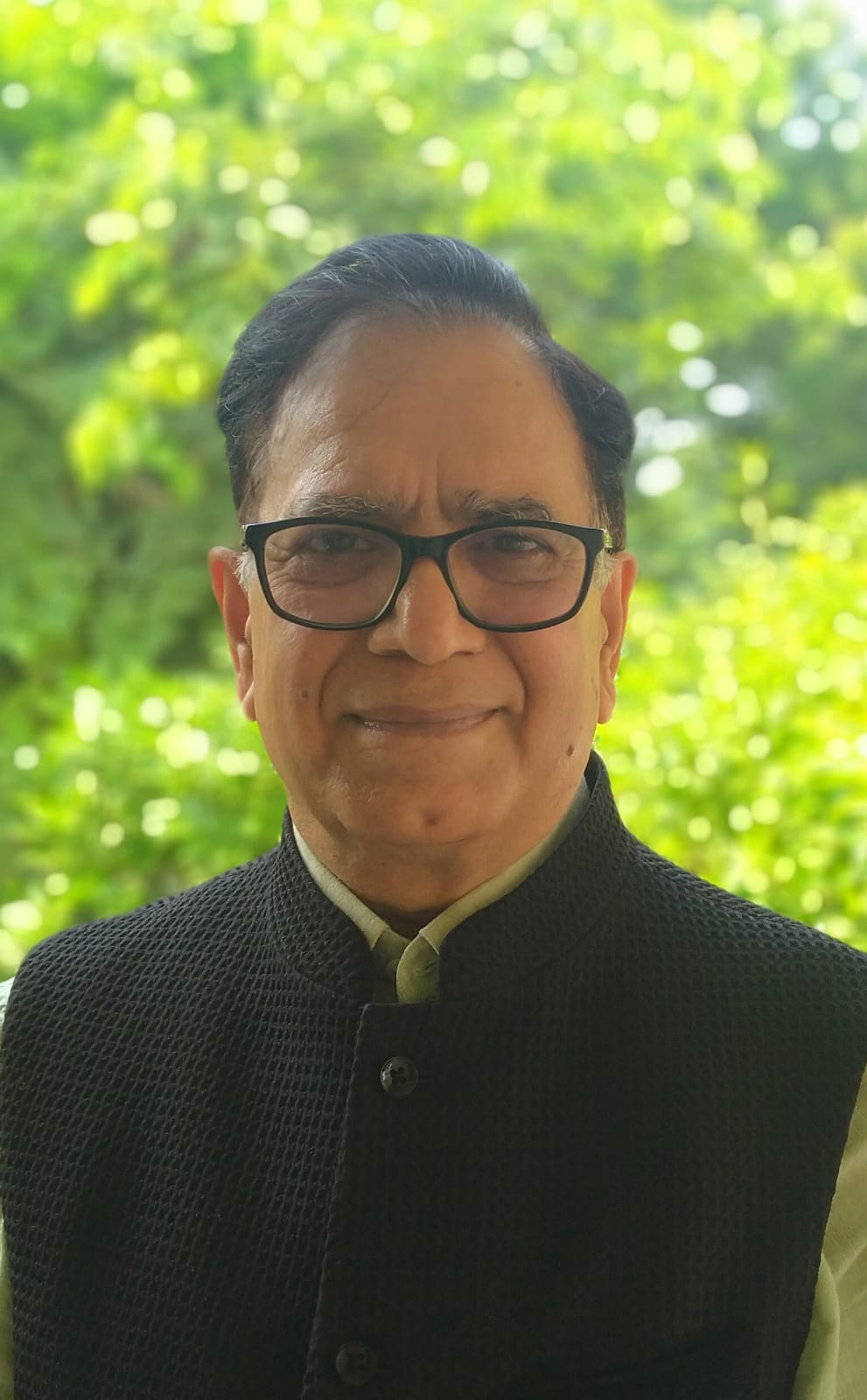
Sri Lanka: Road From Anarchy Towards Stability

After some intense and somewhat violent nationwide protests against the current dispensation, followed by the fight of and subsequent resignation by President Gotabaya Rajapakse, Sri Lanka finally got a president for the remaining period of over two years. As per Sri Lankan constitution, if the highest office of the country falls vacant due to any reason, a pro-term president is chosen till the Parliament elects a new president for the remaining term of the outgoing one. Thus, instead of the direct election for a regular president, the vacancy is filled by the voting in the Parliament. This is why the third candidate in the fray, Anura Kumar Dissanayake who lost to Ranil Wickremesinghe by 3 to 134 votes, has declared and accused that this was “not the will of the people as the MPs were bought over like in past elections”.
Ranil, who was appointed the caretaker President on 13th July by an all- party meet, was the only representative of his party UNP, got wide support from the ruling SLPP party. Though the former Prime minister and two-time president of Sri Lanka from the SLPP, Mahindra Rajapakse, put his weight behind Dulles Alahapperuma, Information Minister in his former cabinet, the latter could garner only 82 votes out of the 147 MPs from the party clearly indicating a division in the party and cross-voting.
Ranil Wickremesinghe has reappointed the same cabinet which was formed by during his short stint before the demonstrations started. However, he made it clear that once all the parties agree on a National Unity Government, the cabinet will be reshuffled. He has appointed Dinesh Gunaratna, Wickremesinghe’s classmate and a minster in the previous cabinet. In some quarters of the protesters, he is still being seen as the Rajapaksa’s man and called “Ranil Rajapaksa”. Though the re- appointment of the same old guards in the cabinet is likely to give a new ammunition to these Wickremesinghe-baters who wanted a complete overhaul in the Government, the new President is by and large a more acceptable leader than the Rajapaksa as his previous long stints as Prime Minister had been unblemished except for the Government Bond scam when he was the PM during Maithripala Sirisena’s presidency.
A suave politician with long experience in dealing with the international financial institutions and diplomatic negotiations, Wickremesinghe reached out to his political opponents with the olive branch saying, “we were divided for the last 48 hours, now let us work together”. His action was equally reciprocated (though perhaps only as a lip-service) when the losing candidate Alahapperuma admitted his defeat and observed that it was “not a defeat but an encouraging guidance” and that “the primary responsibility of all parliamentarians is to win back the lost confidence in politicians who will perhaps listen now to the suffering people”. Mahindra Rajapaksa also admitted that his candidate could not win but whatever Government is there, it must work for the people of the country”. Irrespective of the genuineness of these reactions, one thing is clear that the leaders have realised hard way that the public outcry is capable of throwing them out if they fail to deliver.
Soon after swearing in, the new President pledged to address the needs of the protesters for a system change. He also promised to confront the rampant corruption in the country. Pledging to end confrontational politics and to “work with everyone in the parliament”, Ranil Wickremesinghe displayed how cautious a path he is going to choose. Refuting the allegation of being a friend of the Rajapaksa clan, the new President said that they were not his friends just because he worked with them for a little while. If early signs were to be believed, it seems that the normalcy is gradually returning in Sri Lanka.
“Aragalaya” (protests) have, by far subsided, schools are gradually re-opening (initially for thrice a week), petrol import has resumed albeit in shorter quantity resulting in scheduling sale according to the last digit of registration number of vehicle and power cut has been reduced to two hours a day only. The IMF has also announced its willingness to resume talks with Sri Lanka and the new Government hopes to close the agreement soon. Wickremesinghe’s image of a pro-western and free market reformist is likely to make the deals with international financial institutions easier and quicker though he has clearly warned that these will take time as there are no quick fixes for chronic diseases. India has already been assisting Sri Lanka with financial aids, fuel, medicines, milk and soft loans to address the acute inflation and has reiterated help in future.
While India’s stance has always been clear and helpful for her ailing southern neighbour, some of the Sri Lankan political parties have accused India of meddling in the internal politics of the island nation in order to ensure the victory of Wickremesinghe, a charge vehemently refuted by India. This accusation seems to stem from the fact that the new President is pro-India and a staunch opponent of China’s debt-trap diplomacy towards Sri Lanka. One should not be surprised if these charges against India turn out to be sponsored by China which finds itself now in a tight spot in the current scenario in Sri Lanka. China’s lukewarm reaction towards providing assistance to Sri Lanka has not been taken positively by the majority of Sri Lankan people. This certainly gives India, a friend in need, a clear edge over China which we should not ignore.
Though in May, the G-7 countries had pledged to support Sri Lanka, none of these countries, except Japan, has so far come forward with a definite step towards the bailout. India has been the only country to have promptly responded to the SOS calls. The new President has a very tough task cut out for him and, in order to deliver and restore the confidence of the public, he will have to rise above the party politics and behave like a seasoned statesman. Though he has pledged to do all this, translation of these promises into some concrete action, especially on the eradication of the deep-rooted corruption and on system change, will decide the future of Sri Lanka. Some tough, though unpopular, measures have to be taken in the belt-tightening exercise. The masses of Sri Lanka have now realised that their agitation can topple the corrupt government and they will not hesitate in organising another “Aralaya”, if needed.
Lastly, the developments in Sri Lanka can also have ripple effect other countries in the way the Arab Spring did. Pakistan, Myanmar, Nepal, Laos, Ghana and a number of other small and poor developing nations in Africa, Central and South America and Polynesia and Micronesia are in the same boat as Sri Lanka and some of them have already started feeling the heat of the Sri Lankan popular protest. It should serve as the final warning call to their leaders that if they don’t act, they will have to follow the way of Gotabaya Rajapakse. So, reform or perish!
**************
Disclaimer
The opinions expressed in this article are the author’s own and do not reflect the views of Chanakya Forum. All information provided in this article including timeliness, completeness, accuracy, suitability or validity of information referenced therein, is the sole responsibility of the author. www.chanakyaforum.com does not assume any responsibility for the same.
Chanakya Forum is now on . Click here to join our channel (@ChanakyaForum) and stay updated with the latest headlines and articles.
Important
We work round the clock to bring you the finest articles and updates from around the world. There is a team that works tirelessly to ensure that you have a seamless reading experience. But all this costs money. Please support us so that we keep doing what we do best. Happy Reading
Support Us





















POST COMMENTS (1)
Kalidan Singh